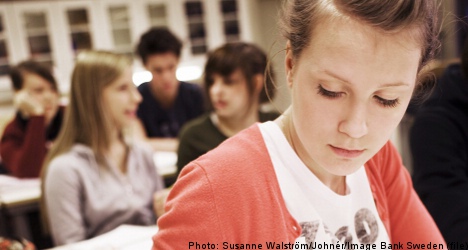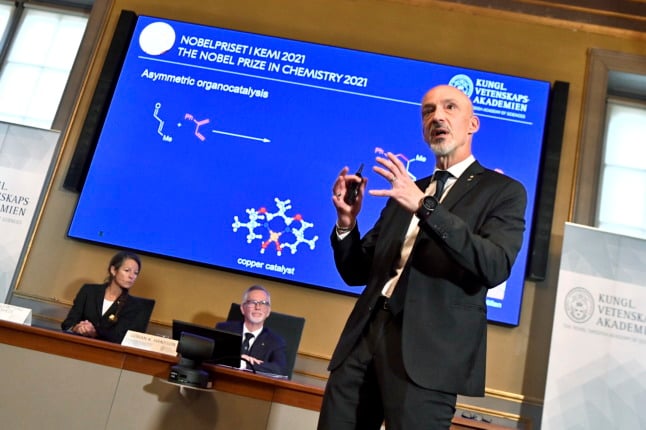Sweden came in 19th overall out of 65 OECD countries and partners, far behind OECD partner Shanghai, China and OECD leaders Korea and Finland, the PISA (Programme for International Student Assessment) 2009 survey revealed. Nordic neighbours Norway (12th) and Iceland (16th) also came ahead of Sweden, as well as the US in 17th.
Compared with PISA 2000, Sweden has lost 19 points and now has 497, compared with 556 for Shanghai, 539 for Korea and 536 for Finland. The OECD average is 493.
The study found that decline in reading skills among Swedish students was greatest for those who were already poor readers, the Swedish National Agency for Education (Skolverket) announced on Tuesday. It also found that Swedish students currently perform below the international average in science.
In addition, the Swedish school system has lost its top spot in equality and an increasing number of students do not possess basic reading skills.
“This is very worrying,” Helén Ängmo, the agency’s acting general director, said in a statement on Tuesday.
Nearly half a million 15-year-olds from 65 countries or regions took part in PISA 2009, of which 4,567 came from Sweden. PISA is an OECD study that evaluates skills in reading, mathematics and science.
The Swedish results were presented and analysed in an education agency report titled “Fit to face the future?”
Literacy is the main focus of the PISA study. Compared with the first PISA survey, the Swedish results have worsened, with the reading comprehension of 15-year-olds at an average level from an international perspective. In all of the previous PISA surveys, Swedish students performed above the OECD average.
At the same time, the Swedish students’ performance in mathematics has also declined. Since the 2003 survey, Swedish students have lost 15 points and currently perform at an average level.
Meanwhile, for the first time, Swedish students have fallen below the OECD average in science. Sweden is now six points below the OECD average and the survey projects a downward trend in this area. The proportion of pupils failing to achieve a basic level in science has increased to nearly 20 percent.
Nearly one-fifth of Swedish students do not meet basic levels in reading comprehension. According to the OECD, this is the one skill that is viewed as essential for continued learning. The proportion has increased from 13 percent to almost 18 percent since 2000.
“One in five students now does not have a basic level in reading, a level needed to benefit from other knowledge,” said Anita Wester, project manager at the agency for Sweden’s participation in PISA.
Among boys, nearly one quarter fall below the basic level. Both boys and girls have fallen behind, but boys have lost even more ground and the poorest performers are mostly boys. Boys performed worse than girls in all subjects, with the difference in reading comprehension between boys and girls increasing from 37 to 46 points in the past decade.
Sweden has also lost ground in equality, which it once led in previous surveys despite being one of the world’s most egalitarian countries, and currently ranks average.
“It is very worrying that the gaps are increasing. Equality is a hallmark of Swedish education and we have high ambitions for the school system’s compensatory mandate and capacity to equalise social differences,” said Ängmo.
PISA revealed a growing disparity between high- and low-performing students and a strengthened role in the students’ socioeconomic backgrounds. In addition, the differences between high-and low-performing schools has increased.
PISA also acknowledged the difference in performance between Swedish students and students with foreign backgrounds. In Sweden, the differences between these groups of students was one of the highest in the survey.
For students with foreign backgrounds born in Sweden, 30 percent failed to meet basic reading levels. In terms of students of foreign origin who were born abroad, the figure was 48 percent, compared with Swedish students, at 14 percent.
“There is concern that students with foreign backgrounds born in Sweden have lower results than those students, although a lot of the differences can be explained by socio-economic backgrounds,” said Wester.



 Please whitelist us to continue reading.
Please whitelist us to continue reading.
Member comments